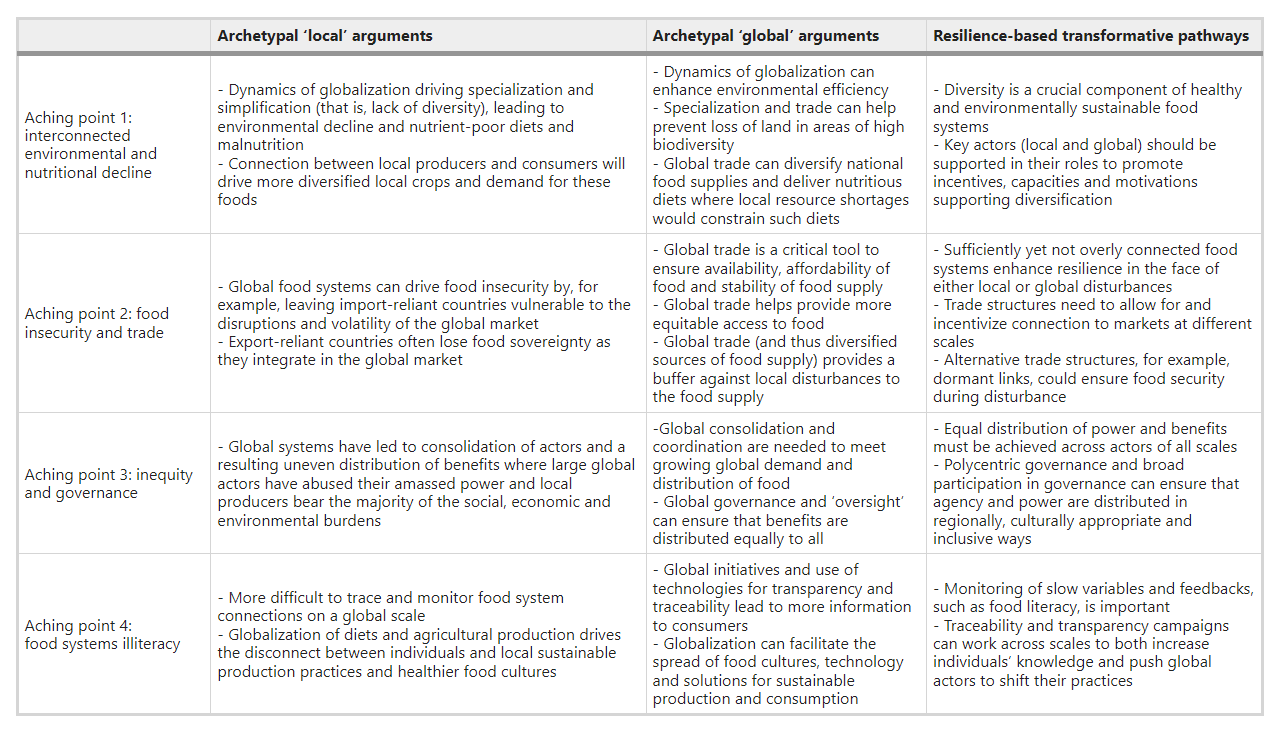Despite the growing knowledge that food system solutions should account for interactions and drivers across scales, broader societal debate on how to solve food system challenges is often focused on two dichotomous perspectives and associated solutions: either more localized food systems or greater global coordination of food systems. The debate has found problematic expressions in contemporary challenges, prompting us to revisit the role that resilience thinking can play when faced with complex crises that increase uncertainty. Here we identify four ‘aching points’ facing food systems that are central points of tension in the local–global debate. We apply the seven principles of resilience to these aching points to reframe the solution space to one that embeds resilience into food systems’ management and governance at all scales, supporting transformative change towards sustainable food systems.

Access the publication
You might also be interested in:
- Indigenous knowledge is key to sustainable food systems
- Growing better: Ten critical transitions to transform food and land use
- An Indian farming biodiversity success story
- Redesigning the food system for planetary health
- Circular Economy and Its Relevance for Improving Food and Nutrition Security in Sub-Saharan Africa: the Case of Ghana